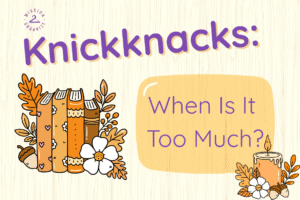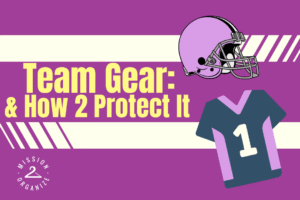Contrary to popular belief, organizing is a skill that can be learned. But what unintended skills do you gain in the process?
While not all professional organizers possess the exact same organizing skills, there are some skills you’ll find we all have in common. Let’s take a look at six skills that, when applied to your daily life, can make an impactful difference.
6 Organizing Skills
Learning to be organized can take time, but the skills you gain from it can enhance your life! Here are the different kinds of organizing skills you might pick up in your quest for orderly living:
Concrete Skills
- Flexibility. When you’re getting organized, being flexible is important.—and not the gymnastics kind! Think more along the lines of understanding the parameters you’ve been given yet making the most of the given situation. For example, if a client doesn’t have a linen closet (or decides to use it for Costco storage instead), we need to get creative and find alternative solutions. Flexibility allows you to think outside the box and change things up with ease. Just as in life, being flexible while organizing makes things easier.

- Communication skills. Whenever an organizer works with a client to bring order to their home and life, communicating clearly is a must. The organizer needs to be able to ask questions to identify the root of the issues the client is facing, as well as be a cheerleader to encourage progress and forward momentum. It also helps if the tone and style of communication is non-judgmental and positive. It is easy to see how implementing this style of compassionate communication will have an impact on every aspect of our lives.



- Time management. The final concrete skill that can help you in your daily life is learning how to manage the clock. Professional organizers typically have a specified number of hours to complete sometimes insurmountable projects. Whether it’s better planning or better use of time, good time management is not only crucial for completing an organizing project but can also help you maintain your schedule and remain grounded. There are many time management systems you can follow (one we really like is Getting Things Done by David Allen), so find which works best for you then see if you can be as productive and efficient as an organizer!



Abstract Skills
- Problem-solving. Similar to flexibility, organizers are problem solvers. They can often find creative solutions to problems that others may have not considered. Can’t keep a drawer or cabinet organized? Organizers can often see the situation with fresh eyes and offer ideas that might work better than what was there before. Flex this skill to identify what issues may be causing a problem and see if you can fix it with a small tweak. Sherlock Holmes watch out!



- Environmental awareness. While it may not seem like an organizing skill, having the awareness and habit to recycle and reuse items is not only good for our clients, but good for the environment as well. Rather than holding on to useless items or improperly disposing of them, organizers understand how to best recycle. And many times, organizers find ways to reuse items a client already has rather than purchasing something new. An organizing skill that’s good for the environment and the wallet!



- Ability to see patterns. If you’ve ever played the game Tetris, you know that to get a high score it’s important to be able to identify patterns and see how things fit together. Professional organizers are like Tetris Ninjas in that they can see how things might fit best in a space. With a twist or turn, organizers can maximize space that is underutilized or nonexistent. This is likely the most important organizing skill you can possess. Whether you’re a novice organizer or a long-time professional, practicing this technique frequently, and being willing to try different scenarios, will strengthen this organizing muscle.










